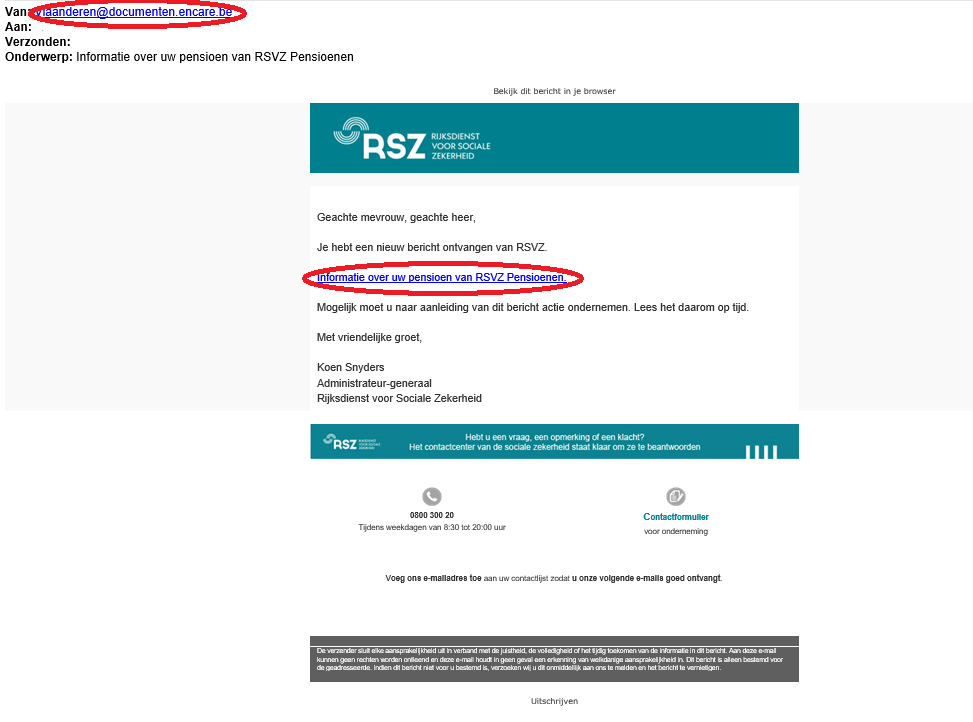The Federal Pension Office reports that fake e-mails are being circulated in their name.
You can quickly see that the message is not from the Federal Pension Office by looking at the sender's e-mail address. Don't click on the link in the message. If you hover over the link without clicking, you will see that the URL is not from the Federal Pension Service.
The Federal Pension Service does not contact you by text or e-mail, but always asks you to retrieve information via your online pension file at mypension.be and log in there using your eID, itsme or another secure key.
How can you spot fake messages from the Pension Service? Read the overview on the Federal Pension Service website.
Check out the recent example below:

- Do not click on a link in a suspicious message, do not open attachments and do not download applications when prompted.
- Suspicious emails can be forwarded to suspicious@safeonweb.be.
- If you did click, don't fill in the fields any further and abort any interaction.
- NEVER give out personal codes.
- If you have passed on a password that you also use in other places, change it immediately.
- From the moment you lose money or are extorted, we recommend you file a police report. You file a report with the local police in your place of residence.
- Contact your bank and/or Card Stop on 078 170 170 if you have passed on bank details, money disappears from your bank account or you have transferred money to a scammer. That way, any fraudulent transactions can be blocked.
